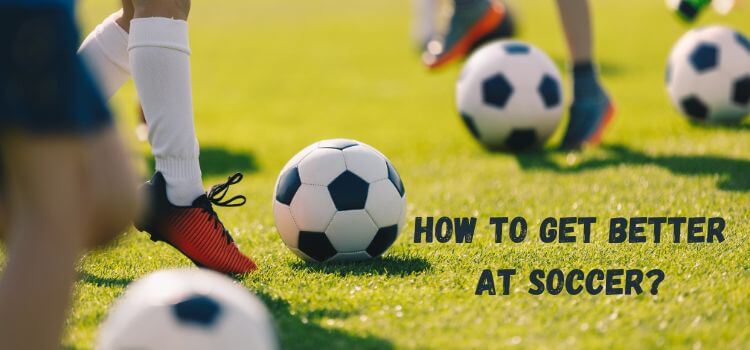As an Amazon Associate, I earn from qualifying purchases
Soccer demands high levels of physical fitness and Endurance. Whether you’re sprinting down the field to make a crucial play or defending against rapid attacks from the opposing team, having optimal stamina can significantly impact your performance on the field. In this guide, we’ll explore practical strategies to enhance your stamina for soccer, helping you become a stronger and more resilient player.

Introduction
Stamina is a vital component of soccer performance. It allows players to maintain high energy levels throughout the game. It enables athletes to sustain intense physical activity, execute precise movements, and make quick decisions under pressure.
Without adequate stamina, players may experience fatigue early in the game, leading to decreased performance and increased risk of injury.
Understanding Stamina in Soccer
Stamina in soccer refers to the ability to sustain prolonged periods of physical exertion without experiencing significant fatigue. It encompasses cardiovascular Endurance, muscular strength, and mental resilience.
In soccer, where matches can last 90 minutes or more, superior stamina can give players a competitive edge over their opponents.
Training Techniques for Building Stamina
Endurance Training
Endurance training involves activities that improve cardiovascular fitness and build muscular Endurance. Long-distance running, cycling, and swimming are excellent options for enhancing overall stamina.
Interval Training
Interval training alternates between high-intensity bursts of activity and short periods of rest or low-intensity exercise. This type of training is particularly effective for improving anaerobic capacity and increasing overall Endurance.
Cross-Training
Cross-training involves various activities to target different muscle groups and prevent overuse injuries. Activities such as strength training, yoga, and plyometrics can enhance overall fitness and stamina for soccer.
Nutrition for Improved Stamina
Proper nutrition is crucial in fueling the body for optimal performance and sustaining energy levels throughout a soccer match. A well-balanced diet rich in carbohydrates, lean proteins, healthy fats, vitamins, and minerals is essential for muscle function and recovery.
Hydration Tips
Staying hydrated is crucial in maintaining stamina and preventing dehydration, which can impair physical and cognitive performance. Athletes should drink plenty of water before, during, and after training sessions and matches.
Pre and Post-Match Meals
A balanced meal containing carbohydrates, protein, and healthy fats before a match can provide the energy needed for optimal performance. After the game, refueling with carbohydrates and protein can support muscle recovery and replenish glycogen stores.
Rest and Recovery
Rest and recovery are equally important as training for building stamina for soccer. Adequate sleep, rest days, and active recovery techniques such as stretching and foam rolling can help prevent overtraining and promote muscle repair and growth.
Mental Stamina in Soccer
In addition to physical conditioning, mental stamina is essential for success in soccer. Developing mental toughness, focus, and resilience can help players maintain composure and perform at their best, even under challenging circumstances.
Psychological Strategies for Enhancing Endurance
Techniques such as visualization, positive self-talk, and goal setting can help athletes overcome mental barriers and push through fatigue during intense moments of play.
Monitoring Progress
Tracking progress is essential for identifying strengths and areas for improvement in stamina training. Keeping a training journal, utilizing fitness apps, and periodically assessing performance can help players adjust their training routines and set realistic goals.
Conclusion
Improving stamina for soccer requires physical training, proper nutrition, rest, and mental conditioning. By incorporating these strategies into your training regimen and maintaining consistency and dedication, you can enhance your Endurance and performance on the field.
FAQs (Frequently Asked Questions)
The timeline for improving stamina varies depending on individual fitness levels, training intensity, and consistency. With dedicated training and proper nutrition, noticeable improvements can often be seen within a few weeks to a few months.
Endurance activities such as running, cycling, and swimming build stamina. Additionally, soccer-specific drills and interval training can help improve Endurance and agility on the field.
Yes, mental training techniques such as visualization, goal setting, and positive self-talk can enhance mental toughness and resilience, allowing players to push through fatigue and maintain focus during matches.
Rest and recovery are essential to building stamina, as they allow the body to repair and strengthen muscles after intense training. Adequate sleep, rest days, and active recovery techniques prevent overtraining and maximize performance.
Proper hydration is critical for maintaining stamina and preventing dehydration, which can impair physical and cognitive performance. Athletes should drink plenty of water before, during, and after training sessions and matches to stay hydrated.
Read Our More Articles
- How to Make Soccer Better Meme: Humor elevates your game
- Is it Better to Be Short in Soccer? A Look at the Pros and Cons
- Why Soccer Is the Worst Sport? A Comprehensive Guide
As an Amazon Associate, I earn from qualifying purchases


